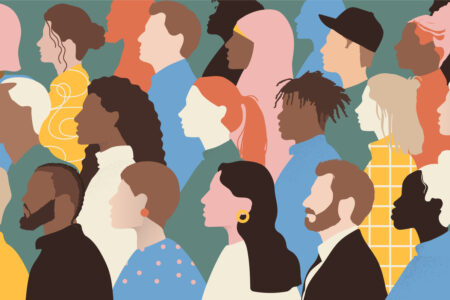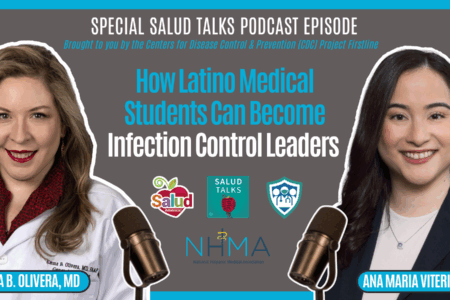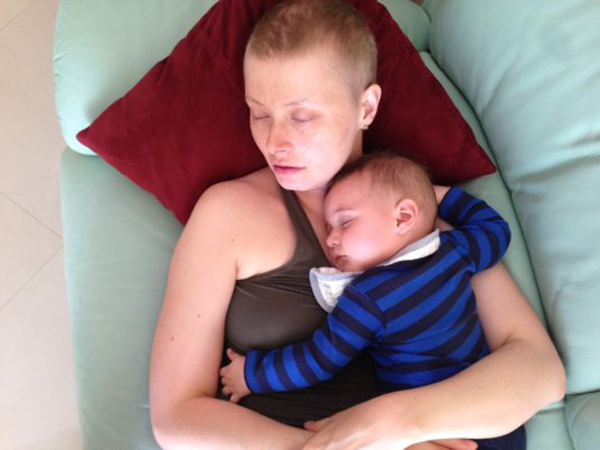
Share On Social!
When Julia Maues was 29, she gave birth to a healthy baby boy who had a full head of hair—while she had no hair at all due to chemotherapy for breast cancer.
During her pregnancy, she was diagnosed with HER2-positive breast cancer.
Maues began chemo while pregnant, which is the standard of care. After her son was born in 2013, she underwent more tests she couldn’t have while pregnant.
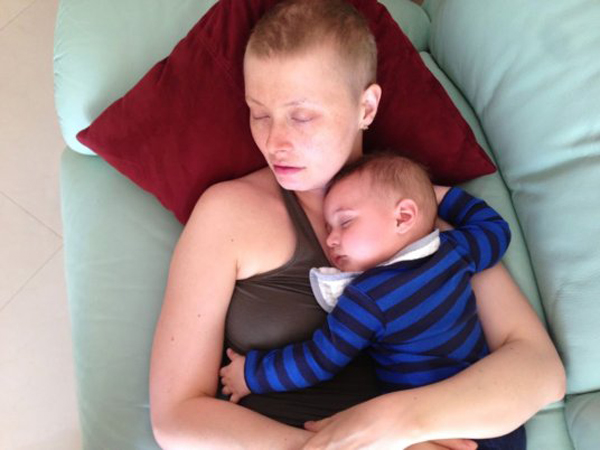
Doctors found that her cancer had already spread to her brain, liver, and bones. After trying different drugs and finding the right one, the cancer started to respond to the therapy.
There were (and still are) many setbacks: Most drugs don’t penetrate the brain, many drugs harm the heart, the side effects can be debilitating, and her incurable illness has taken a huge emotional toll on herself as well as her loved ones.
“Cancer is part of my life, but it doesn’t define me,” Maues told Salud America! “I am LIVING!”
In fact, through learning to share her story, Maues has become an inspiring advocate for cancer patients and someone who stands up for health equity and social justice.
Maues Gets a Start in Advocacy
For the first few years after her metastatic diagnosis, Maues did not get involved in support groups or advocacy work.
One day, her oncologist asked her to speak at a fundraiser for his research.
She accepted. She quickly recognized the power of sharing her story.
“Being able to help other patients going through similar struggles and to help researchers better work for us patients has been extremely rewarding,” Maues said.
She began to get more involved. For example, Maues served in the 2018 Living Beyond Breast Cancer Hear My Voice class of volunteers.
Maues also participates as an advocate with Georgetown Breast Cancer Advocates, a group at Georgetown University’s Lombardi Comprehensive Cancer Center, in Washington, D.C. They work with researchers, clinicians and other stakeholders to ensure that research is patient-centered, innovative and accessible.
“As I have gotten more involved with breast cancer advocacy, I have become more aware and outspoken about the struggles that the metastatic breast cancer community, in particular, faces,” Maues said. “It’s important to humanize the stories. And the realities of living with cancer.”
Being an advocate and sharing her story has opened her eyes to many inequities.
Maues Starts the Patient-Focused GRASP Program
One of the inequities Maues discovered was the disconnect between patients, researchers, and oncologists.
“Usually, patients are talked to, not talked with,” Maues said.
This is even more true for researchers doing basic science research, who never connect with the patient.
She wanted to change that.
So Maues created the GRASP program with the help of her friend, Christine Hodgdon.
The GRASP program, which stands for Guiding Researchers and Advocates to Scientific Partnerships, is a patient-led initiative to bring patient advocates and scientists together for a guided walkthrough of scientific posters presented at the San Antonio Breast Cancer Symposium (SABCS).
GRASP seeks to create a private interactive learning environment whereby:
1) patient advocates ask questions to better understand scientific posters in a more robust and meaningful manner, and
2) members of the science community engage directly with the people they are trying to serve, while fostering a sense of urgency and purpose to their research.
“It’s the most rewarding thing – to see researchers connect with patients,” Maues said. “Together, they also learn from each other.”
Maues Starts Fight against Bias
Another endeavor Maues has taken on?
Fighting injustices and inequities in health care.
“As a Brazilian woman who looks white, I recognized my privilege,” Maues said. “When being treated, I present white and experience the privilege of being a white patient.”
But she knows that so many Latinos and African-Americans don’t have this privilege.
Many studies have shown that physicians—especially white physicians—have implicit, subconscious preferences for white patients over those of color.
Implicit bias can lead to false assumptions and adverse health outcomes.
For example:
- Latino men are less likely to get treatment for high-risk prostate cancer than White men.
- Pregnant women of color face discrimination from healthcare providers.
- Minorities who visit an emergency room in the U.S. are less likely to get prescriptions for certain medications than Whites.
Here’s how to figure out if you have implicit bias.
Maues is very outspoken about busting biases. She believes we should all recognize our privilege and speak for others who can’t.
Maues Takes a Pledge for Diversity
For her part, Maues also has taken a pledge to not participate on panels, events, or projects that do not include a person of color.
“And interestingly, some people still do not understand why I say, ‘no,’” Maues said.
Fortunately, Maues will be participating in a diverse panel at the 2nd Advancing the Science of Cancer in Latinos conference. The conference, co-hosted by the Institute for Health Promotion Research at UT Health San Antonio, the team behind Salud America!, is set for Feb. 26-28, 2020, in San Antonio.
Register now and hear Maues talk about the evolving role of patient advocacy!
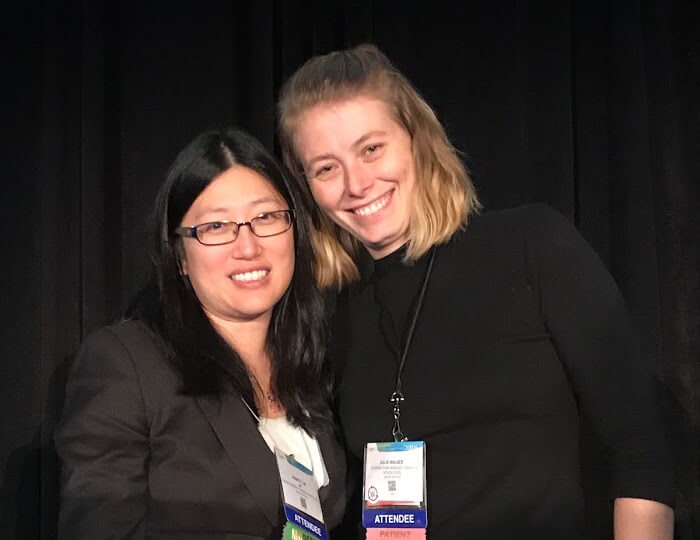 In addition to her work advocacy, Maues is enjoying the unexpected extra time with her son, Max, which she says, “has been wonderful,” according to a story featuring Maues and Dr. Nancy U. Lin, one of her doctors who treated her cancer, at the Susan F. Smith Center for Women’s Cancers at Dana-Farber.
In addition to her work advocacy, Maues is enjoying the unexpected extra time with her son, Max, which she says, “has been wonderful,” according to a story featuring Maues and Dr. Nancy U. Lin, one of her doctors who treated her cancer, at the Susan F. Smith Center for Women’s Cancers at Dana-Farber.
“She wants to create as many strong memories with him as possible while living day-to-day with the reality of an incurable disease that could worsen at any time,” according to the story.
Dr. Lin calls Maues “truly a force.”
“Despite having an incurable disease, she lives her life with hope and gratitude, and she has channeled her energies into fierce activism and advocacy for metastatic breast cancer research and care,” Lin said. “I cannot even begin to count the number of people whose lives she has touched — her example pushes us all to do better.”
By The Numbers
3
Big Excuses
people use to justify discriminatory behavior
This success story was produced by Salud America! with support from the Robert Wood Johnson Foundation.
The stories are intended for educational and informative purposes. References to specific policymakers, individuals, schools, policies, or companies have been included solely to advance these purposes and do not constitute an endorsement, sponsorship, or recommendation. Stories are based on and told by real community members and are the opinions and views of the individuals whose stories are told. Organization and activities described were not supported by Salud America! or the Robert Wood Johnson Foundation and do not necessarily represent the views of Salud America! or the Robert Wood Johnson Foundation.


